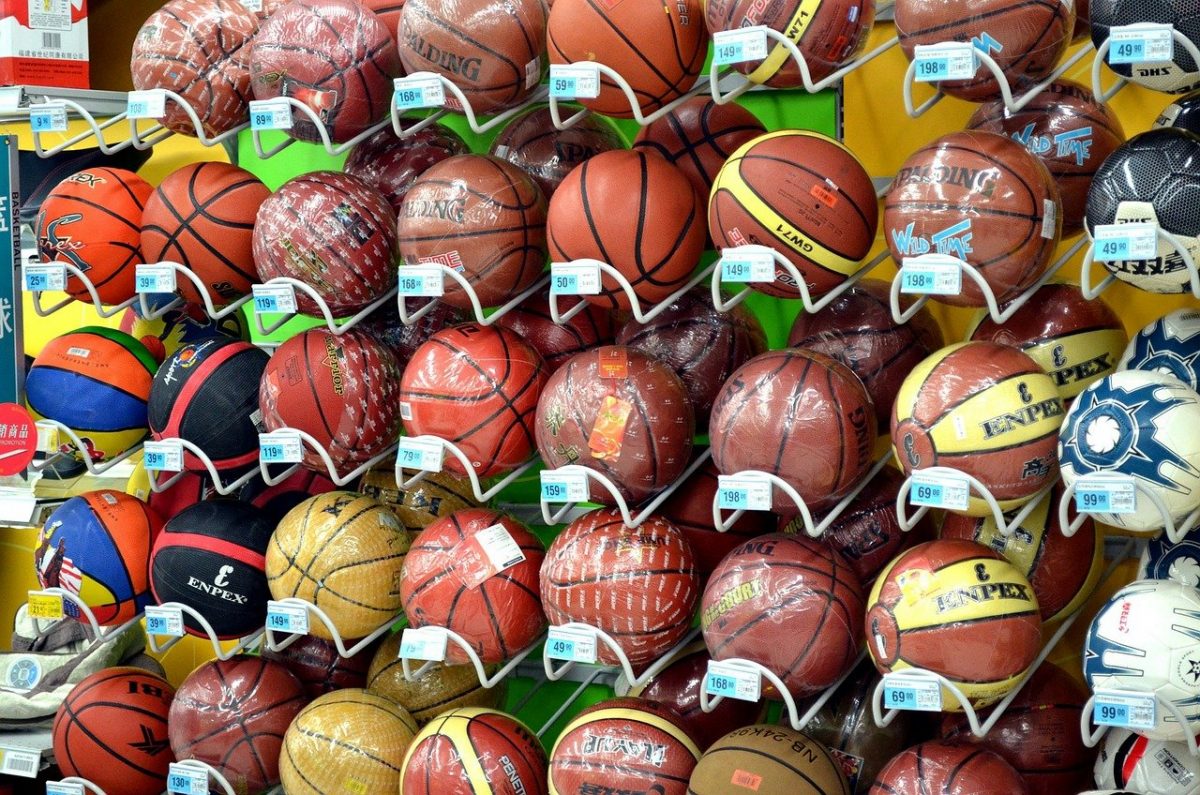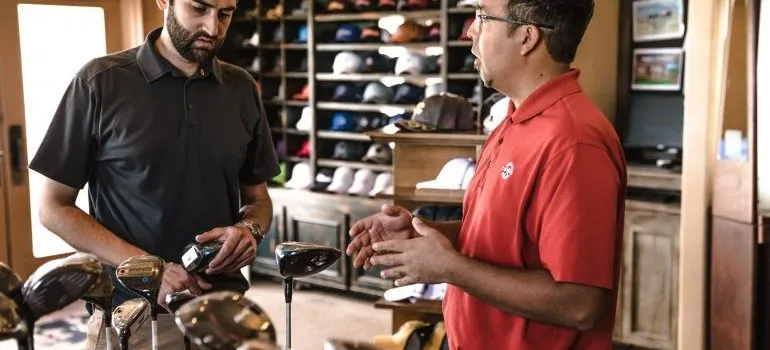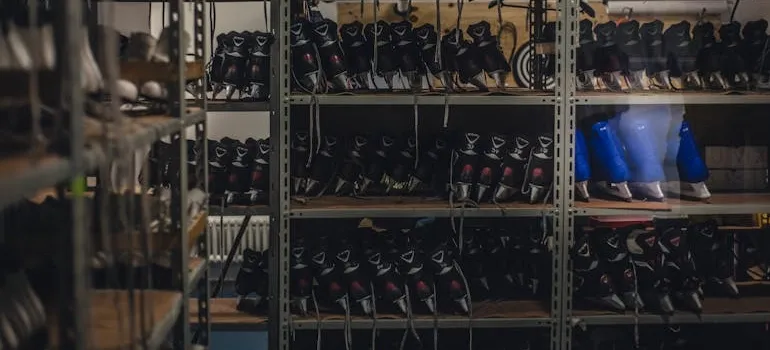Reasons why sporting goods stores need self storage
get a quote
Sporting goods stores carry a wide range of products, from small accessories to large and bulky equipment. With constantly changing inventory, seasonal demand, and space constraints, managing stock efficiently can be a challenge. Retail space in Seattle is expensive, and overloading shelves with excess inventory can create a cluttered shopping environment that discourages customers. PortaBox Storage offers a practical and cost-effective solution for sporting goods stores that need extra space. Here are the key reasons why sporting goods stores need self storage and how it can help improve overall operations.
Managing seasonal inventory efficiently
Sporting goods stores sell products that change with the seasons, requiring constant stock rotation. Winter gear such as skis, snowboards, and insulated apparel is in high demand during colder months, while summer brings an increased need for camping gear, kayaks, and water sports equipment. Keeping all seasonal inventory in-store year-round takes up valuable retail space, making it difficult to showcase current-season products effectively.
Reliable self-storage helps manage seasonal inventory in several ways:
- Freeing up retail space – Storing off-season items offsite prevents them from cluttering the sales floor and ensures that customers see only relevant products.
- Keeping inventory organized – A dedicated storage unit allows businesses to separate seasonal stock, making it easier to access when the time comes for rotation.
- Simplifying seasonal transitions – When winter gear needs to be swapped out for summer equipment, having a self storage unit makes the process smoother and more efficient.
- Preventing premature discounts – Instead of heavily discounting out-of-season stock to make room, stores can store it securely until demand returns.
Moving seasonal inventory to business storage in Seattle ensures that store shelves remain uncluttered, transitions between seasons happen seamlessly, and customers always find the most relevant products in stock.

Maximizing retail space for a better customer experience
Retail space should be optimized for displaying products, not storing excess stock. Overcrowded shelves and cluttered aisles create a poor shopping experience, making it harder for customers to find what they need. Sporting goods stores carry large items such as bicycles, treadmills, and kayaks, which take up significant space. When too much inventory is kept on the retail floor, the layout becomes overwhelming, reducing the appeal of the store.
A self-storage unit provides a way to clear unnecessary clutter, allowing for a more inviting and organized retail space. Customers are more likely to spend time browsing when products are well displayed in an uncluttered setting. New arrivals and bestsellers get the visibility they deserve when surplus stock is stored offsite.
Reducing overhead costs compared to warehouse rentals
Expanding storage within a retail location or leasing additional warehouse space can be a costly decision. Many sporting goods stores operate on tight budgets, and committing to expensive long-term leases for storage space may not be financially viable.
Self-storage provides a more affordable alternative to warehouse rentals without requiring long-term commitments. Month-to-month storage options allow stores to scale their space based on seasonal demand. A small unit may be enough during slower months, while a larger unit can accommodate peak-season inventory. Renting an Everett self storage unit instead of commercial warehouse space helps stores control costs while maintaining flexibility in their operations.
Storing bulk purchases and promotional stock
Buying in bulk is a cost-saving strategy used by many sporting goods stores, but limited storage space often prevents businesses from taking advantage of supplier discounts. Vendors frequently offer lower prices for larger orders, yet without adequate storage, many retailers hesitate to stock up.

Self-storage helps you keep bulk inventory without overcrowding your retail space. Ordering high-demand items in advance and storing them prevents stock shortages during peak seasons. You can also store promotional stock, such as branded apparel or giveaway items for special events, and access it easily when necessary.
Managing team and club equipment efficiently
Many sporting goods stores provide gear and uniforms for local sports teams, schools, and community organizations. These bulk orders require substantial storage space, especially when multiple teams need different sets of equipment throughout the year. Storing these items on-site can quickly consume valuable retail or backroom space, making it difficult to manage other inventory effectively.
Your sporting goods stores need self storage because it gives you a convenient way to organize team-related inventory. You can store uniforms, training equipment, and seasonal sports gear safely and retrieve them when needed. Using a reliable offsite storage space keeps large orders organized and easily accessible, preventing misplaced items.
Preparing for trade shows, events, and pop-up shops
Sporting goods businesses frequently participate in trade shows, local sporting events, and temporary retail setups such as pop-up shops. These events require large amounts of inventory, promotional materials, and display fixtures that can be difficult to store at a retail location.
Self-storage provides a temporary holding space for event-related supplies, keeping them safe and organized until needed. Instead of cluttering backrooms or renting costly short-term storage, businesses can store banners, tents, and event merchandise in a dedicated unit. Accessing inventory for events becomes easier when everything is ready in one convenient location.

Simplifying store renovations and layout changes
Expanding or remodeling your sporting goods store requires moving inventory and fixtures, which creates logistical challenges. Without proper storage, you may cram products into limited space or place them in an inconvenient temporary location, disrupting operations.
Mobile and cost-effective, Seattle mini storage helps keep excess stock, shelving, and equipment safe during renovations. Retailers can continue business as usual while making necessary improvements to the store layout. Keeping inventory offsite ensures that products remain undamaged and ready for restocking once renovations are complete.
A simple solution for better inventory management
So, why do sporting goods stores need self storage? They face unique storage challenges due to their wide range of inventory, seasonal demand, and large equipment. Self-storage provides an efficient, cost-effective, and flexible solution for managing inventory without overcrowding the store.
Investing in self storage leads to better organization, improved customer experiences, and reduced overhead costs. Sporting goods retailers can operate more efficiently and stay prepared for changes in demand, all while keeping their sales floor optimized for a seamless shopping experience.
